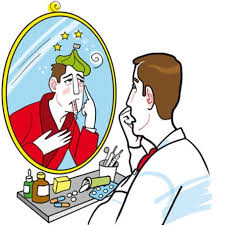A nurse is caring for a client diagnosed with bipolar disorder in an acute manic state. The client is running around the unit asking people to dance with her. After ensuring safety, which of the following interventions should the nurse take?
Turn on a dance video so the client can burn off excess energy.
Take the client to a calm environment and offer snacks.
Offer the client a low-calorie snack in return for stopping the behavior.
Observe the client closely for the development of aggressive behavior.
The Correct Answer is B
Choice A: Turn on a dance video so the client can burn off excess energy.
This intervention might help the client to channel their energy in a safe and controlled manner. However, it might also reinforce the manic behavior, which could be counterproductive in the long term.
Choice B: Take the client to a calm environment and offer snacks.
This intervention could help to distract the client from their manic behavior and provide them with a calming and grounding experience. Offering snacks could also help to stabilize their energy levels.
Choice C: Offer the client a low-calorie snack in return for stopping the behavior.
This intervention could be seen as a form of behavioral reinforcement. However, it might not be effective if the client is not motivated by food or if they perceive it as a form of manipulation.
Choice D: Observe the client closely for the development of aggressive behavior.
This intervention is crucial for ensuring the safety of the client and others in the unit. If the client's behavior escalates to aggression, the nurse would need to take immediate steps to de-escalate the situation and protect everyone involved.
Nursing Test Bank
Naxlex Comprehensive Predictor Exams
Related Questions
Correct Answer is ["A","B"]
Explanation
Choice A reason:
This hypothesis aligns with the typical motivations seen in factitious disorder, where individuals intentionally produce or exaggerate symptoms of illness in themselves to receive attention, sympathy, and care from medical personnel¹. The nurse should prioritize understanding this behavior to manage the client's care effectively and to avoid unnecessary medical interventions.
Choice B reason:
Similar to choice A, individuals with factitious disorder may induce injury or illness to fulfill a psychological need for attention and validation. Recognizing this motivation is crucial for the nurse to provide appropriate psychological support and to prevent further self-harm.
Choice C reason:
While misdiagnosis or medical error can occur, this is not typically a hypothesis that should be prioritized in the care of a client with factitious disorder. The disorder involves intentional actions by the client, not errors by healthcare providers.
Choice D reason:
Seeking financial gain is more characteristic of malingering than factitious disorder. In factitious disorder, the primary motivation is psychological gratification from playing the patient role, rather than external incentives like financial gain.
Choice E reason:
Factitious disorder involves the intentional production of symptoms without an underlying medical condition. Therefore, this hypothesis would not be a priority in the care of a client with factitious disorder, as the symptoms are not related to a genuine medical condition but are self-induced.

Correct Answer is C
Explanation
Choice A reason:
Complicated grieving is a natural response to the loss of a loved one, characterized by intense sorrow and longing. However, the client's statement indicates a sense of hopelessness and a lack of desire to continue living, which goes beyond the typical symptoms of complicated grieving. While it is important to assess for complicated grieving, the client's expression of not wanting to go on suggests a more immediate risk.
Choice B reason:
Chronic pain can lead to depression and decreased quality of life, but the client does not mention any physical pain. The absence of such complaints makes chronic pain a less likely cause for the client's current state. It is still important to assess for any physical discomfort that the client may not be communicating.
Choice C reason:
The client's statement of questioning the purpose of continuing life is a clear indicator of suicidal ideation, which warrants immediate further assessment. The risk for suicide is often heightened following significant life events such as the loss of a spouse. The nurse must prioritize this assessment to ensure the client's safety.
Choice D reason:
Social isolation can contribute to feelings of loneliness and depression, particularly in the elderly who have lost a significant other. While social isolation is a concern and can exacerbate other mental health issues, the client's explicit questioning of life's worth points more directly to a risk for suicide.
Whether you are a student looking to ace your exams or a practicing nurse seeking to enhance your expertise , our nursing education contents will empower you with the confidence and competence to make a difference in the lives of patients and become a respected leader in the healthcare field.
Visit Naxlex, invest in your future and unlock endless possibilities with our unparalleled nursing education contents today
Report Wrong Answer on the Current Question
Do you disagree with the answer? If yes, what is your expected answer? Explain.
Kindly be descriptive with the issue you are facing.
